THE LIFE OF VLADIMIR HOROWITZ
(in a nutshell)
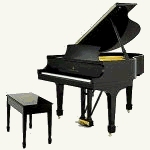
The eminent piano virtuoso Vladimir Horowitz, was born in Berdichev, Russia,
on Oct. 1 , 1903. He was an internationally renowned performer for nearly
seven decades. He recieved his early training from his mother, an accomplished
pianist herself, and early inspiration from none other than Alexander Scriabin,
a friend and teacher of his uncle.
Trained at the conservatory at Kiev, he became an accomplished pianist but
preferred composing his own music to performing. After his family lost most
of its possessions in the Russian Revolution, including the piano, he began
giving piano recitals in exchange for food and clothing.
He studied with Sergei Tarnowski, then Felix Blumenfeld, making his debut
at the age of 17 in Khar'kov, in the Ukraine, in 1922. His success as a pianist
in the new Soviet Union was assured by a series of 23 recitals in Leningrad
in 1924. In these he performed a total of more than 200 works. In 1925 he
went on a concert tour of Europe.
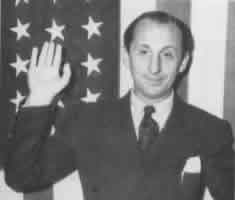 |
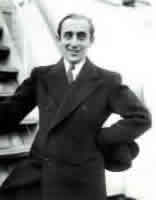 |
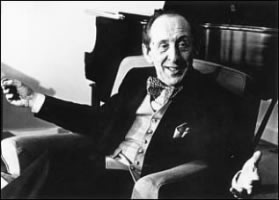 |
Very successful in Europe, he made his American debut in 1928 in Carnegie
Hall, playing Tchaikovsky's first piano concerto with the New York Philharmonic.
Horowitz considered his true American debut when he met Sergei Rachmaninoff.
They immediately became close friends. He quickly gained a reputation as an
outstanding virtuoso.
In 1933, he married Wanda Toscanini, daughter of the conductor, Arturo Toscanini.
Seven years later, after the outbreak of World War II in Europe, they settled
in the United States, and in 1944 he became a United States citizen. Exhausted
from strenuous concertizing, he retired in 1953. He continued making records,
but returned in 1965 to perform in Carnegie Hall.
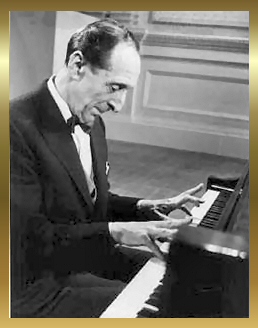 |
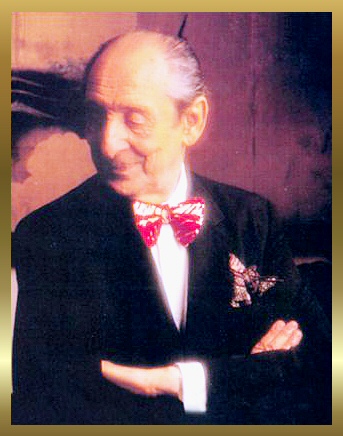 |
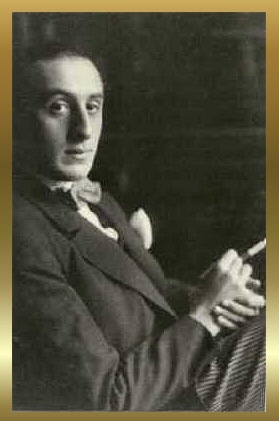 |
Horowitz was always interested in how the young people felt about him
and if they knew who he was. He was a lifelong champion of the music of Alexander
Scriabin and he included much of Scriabin's music in his concerts in the 1960's
to comemorate the 50th anniversary of the composer's death. In January 1978
he celebrated the 50th anniversary of his American debut with a performance
in Carnegie Hall of Rachmaninoff's Concerto no. 3 with the New York Philharmonic
under Eugene Ormandy.
Tired after the five very busy years after his golden jubilee Horowitz seemed
headed towared a depressing end and in 1983 he retired after a very disappointing
concert in Japan. After two years, in 1985, Horowitz again stunned the world
with a recovery and a farewell tour that would last three years and take him
around the world. . . again. He was featured in a film documentary entitled
'Vladimir Horowitz: the Last Romantic'. In 1985 he gave a triumphal concert
in Paris, which had snubbed his performances in 1951.
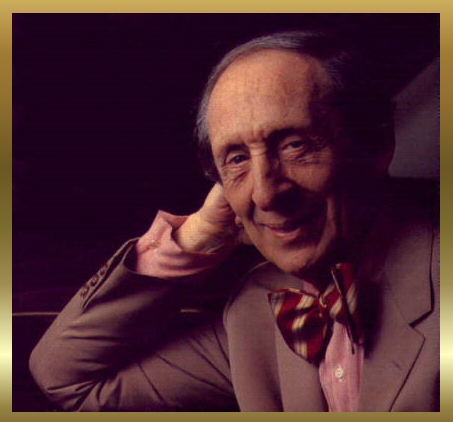 |
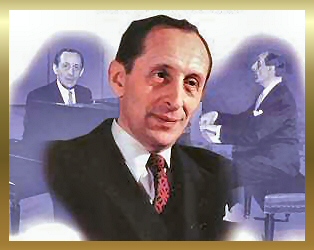 |
He was awarded the Medal of Freedom in 1986, and in that same year he made the grand gesture of his career by returning to the USSR, from which he had escaped by a ruse in 1925, for a series of sold-out performances. He was then off to Germany to perform in Berlin and Hamburg. He developed a love for Mozart later in life, and he recorded a Mozart concerto in 1988. His last public performances were in Vienna 1987. He died in New York City on Nov. 5, 1989.